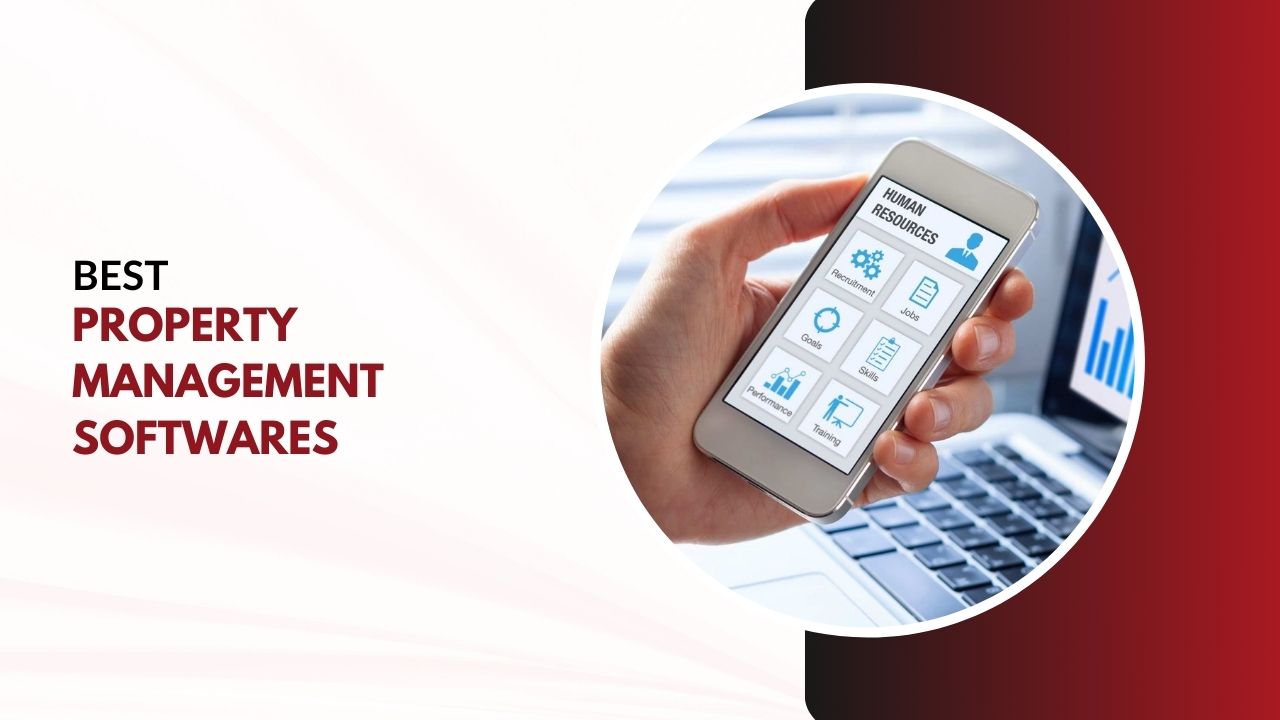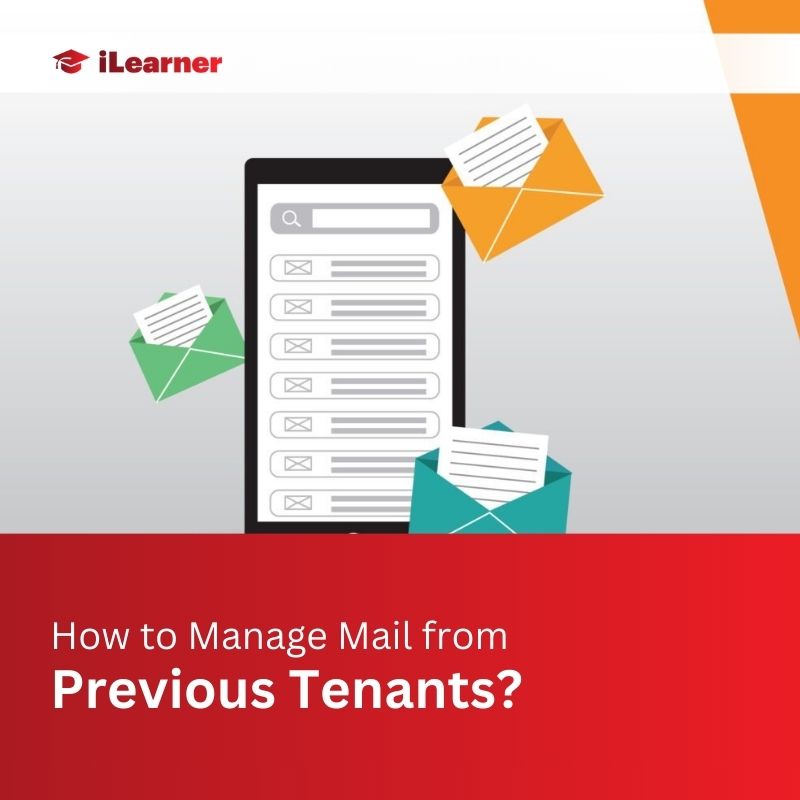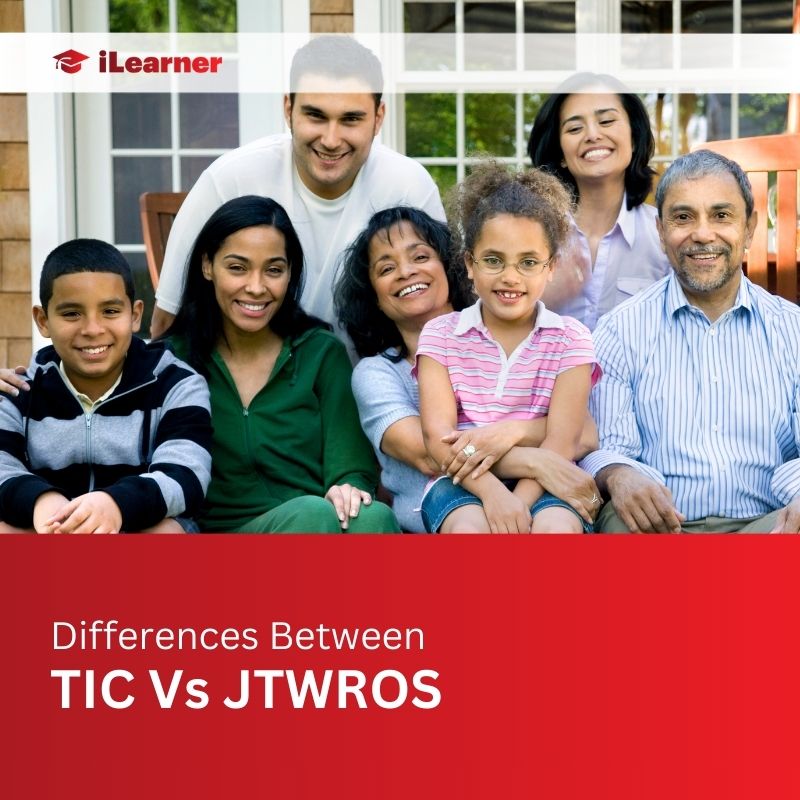In today’s competitive landscape, property management software has become an indispensable tool for property managers. It not only streamlines operations but also reduces costs and enhances tenant satisfaction. In this article, we’ll explore the significance of property management software and its many benefits.
Types of Property Management Software
Property management software can be categorized based on functionality and target audience. Here are the key categories:
1. Accounting and Financial Management
This category includes software for managing rental income, tracking expenses, and generating financial reports, streamlining the financial aspects of property management.
2. Tenant Management
Tenant management software simplifies tenant applications, screening, lease agreements, and communication, ensuring a seamless tenant experience.
3. Maintenance Management
Software in this category assists in tracking work orders, scheduling maintenance tasks, and managing vendor relationships, crucial for property upkeep.
4. Marketing and Leasing
This software is designed for listing properties, attracting tenants, and managing the leasing process, making it easier to fill vacancies.
5. Reporting and Analytics
Reporting and analytics software helps generate comprehensive reports and analyze key property management metrics, enabling data-driven decisions.
Top Property Management Software Solutions
When it comes to property management software, there are several top-notch solutions to consider. Here’s a list of some of the leading options:
1. Buildium
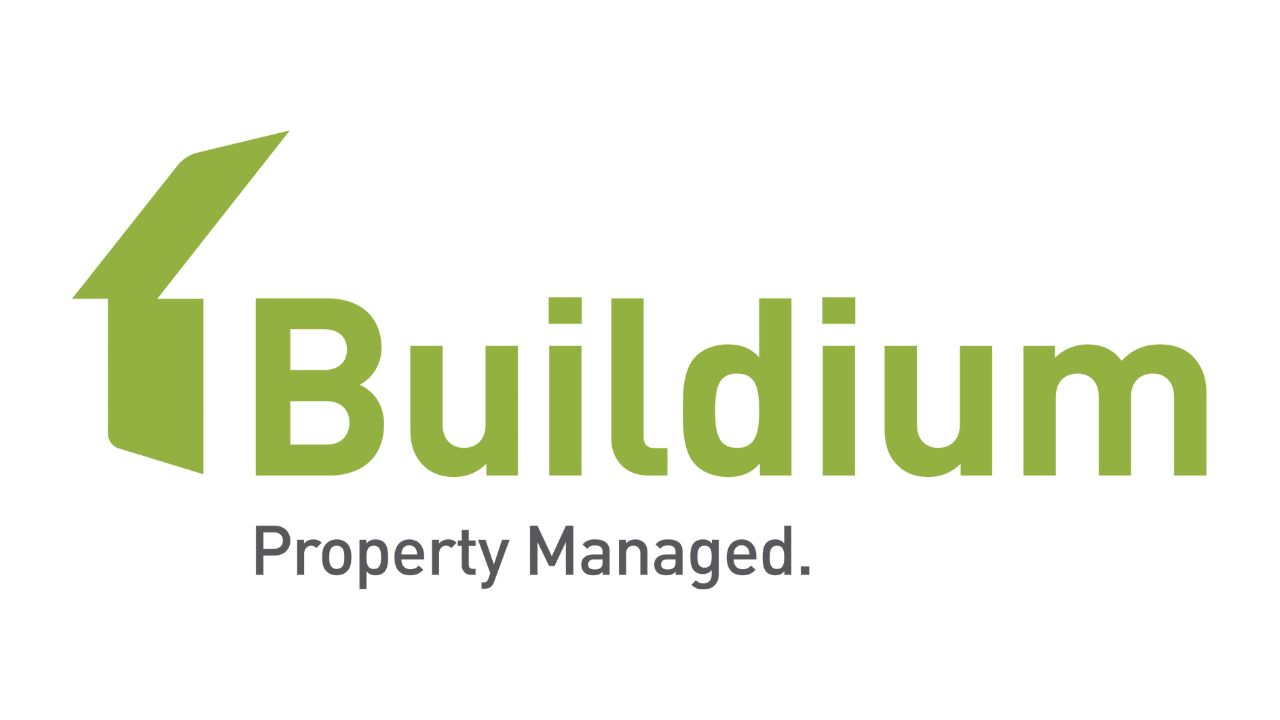
Property management can be a complex task, but with the right tools, it becomes more manageable and efficient. Buildium, a cloud-based property management software solution, caters to the diverse needs of property managers, from small businesses to large enterprises. Its comprehensive suite of features aims to streamline operations, enhance tenant satisfaction, and boost profitability.
Key Features:
Accounting and Financial Management:
- Rental Income and Expenses: Manage rental income, track expenses, and generate detailed financial reports.
- Accurate Financial Statements: Generate accurate financial statements to maintain a clear financial overview.
- Bank Transaction Tracking: Track and reconcile bank transactions with ease.
Tenant Management:
- Tenant Applications and Background Checks: Process tenant applications and perform background checks efficiently.
- Lease Agreements: Manage lease agreements and renewals with a simplified approach.
- Online Rent Collection: Collect rent online and handle late payments seamlessly.
- Resident Portal: Provide a resident portal for tenant communication and self-service.
Maintenance Management:
- Work Orders: Create and track work orders to ensure timely maintenance.
- Scheduled Tasks: Schedule maintenance tasks and assign them to vendors.
- Vendor Management: Manage vendor relationships and payments efficiently.
Marketing and Leasing:
- Online Property Listings: List properties online and effectively manage listings.
- Targeted Marketing: Attract tenants through targeted marketing campaigns.
- Leasing Process Management: Manage the leasing process from applications to move-in efficiently.
Reporting and Analytics:
- Comprehensive Reports: Generate comprehensive reports on property performance.
- Data Analysis: Analyze key metrics to identify trends and make informed decisions.
Things to Consider Before Choosing Buildium
- Pricing: Buildium offers tiered pricing plans based on the number of units managed and the features required. Small businesses with a limited number of units may find the pricing expensive.
- Integrations: Buildium integrates with various third-party applications, including online payment gateways and marketing automation platforms, enhancing its functionality.
- Training and Support: Buildium provides extensive training and support resources, including online tutorials, webinars, and responsive live chat support.
Pros of Buildium
- Comprehensive Features: Buildium covers all aspects of property management, from accounting and tenant management to maintenance and reporting. It offers a one-stop solution for property managers.
- User-Friendly Interface: Buildium’s user-friendly interface ensures that property managers can easily learn and navigate the software.
- Mobile App: With Buildium’s mobile app, property managers can access and manage their properties on the go, providing flexibility and convenience.
- Customer Support: Buildium is renowned for its responsive and helpful customer support, ensuring that users receive assistance when needed.
Cons of Buildium
- Pricing for Small Businesses: The pricing plans may be expensive for small businesses with a limited number of units, impacting the affordability.
- Complex Features: Some of Buildium’s features may be too complex for property managers with limited technical expertise, potentially leading to challenges in utilization.
- Time-Consuming Setup: Setting up and implementing Buildium can be time-consuming, particularly for larger property management companies.
2. AppFolio Property Manager
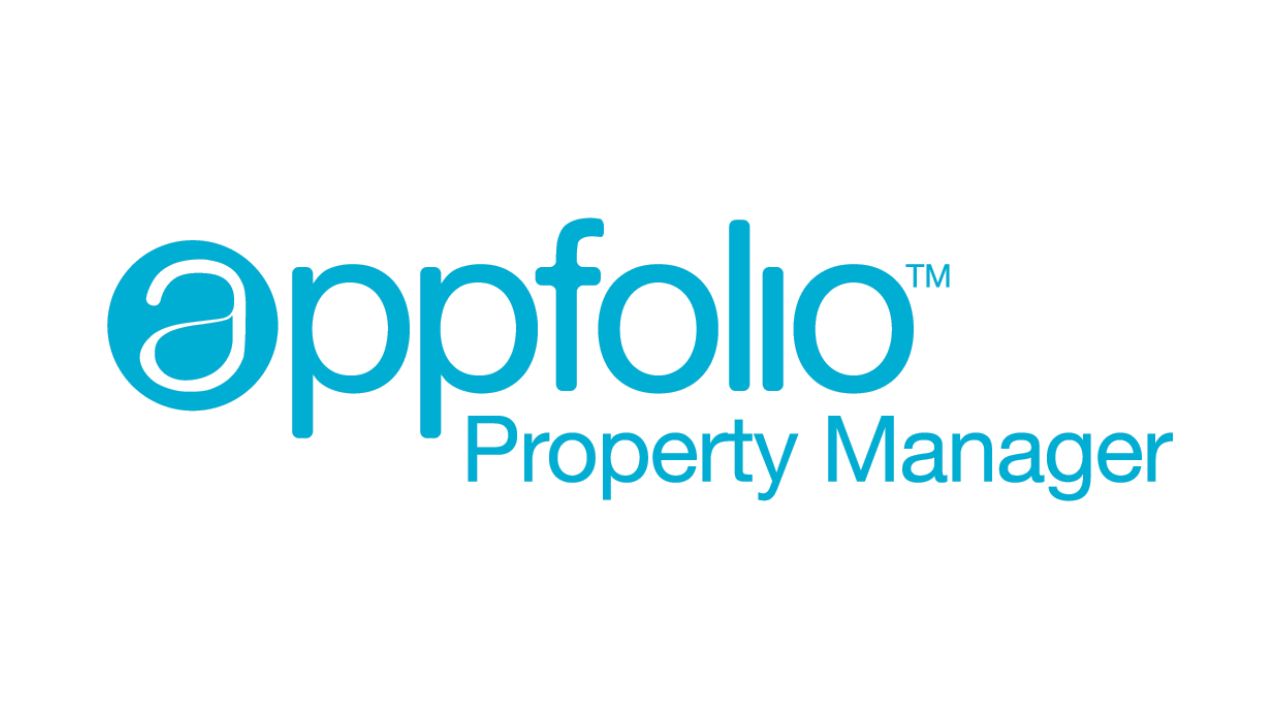
In the dynamic world of property management, the need to balance financial intricacies, tenant relations, maintenance tasks, marketing, and reporting can be an overwhelming challenge. Yet, AppFolio Property Manager, a cloud-based property management software, has risen to the forefront as a leading choice for property professionals. With its robust suite of features and a user-friendly interface, it excels at streamlining operations, enhancing tenant satisfaction, and ultimately boosting profitability.
Key Features
Accounting and Financial Management:
- Efficient Income Management: AppFolio Property Manager simplifies rent collection and tracks various income streams, reducing administrative burdens.
- Precise Expense Tracking: Property managers can seamlessly track expenses and generate precise financial reports for better budget management.
- Bank Statement Reconciliation: The software streamlines the reconciliation of bank statements and handles late payments, ensuring financial stability.
Tenant Management:
- Tenant Application Simplification: AppFolio Property Manager simplifies tenant applications and background checks, saving time and reducing friction in the application process.
- Lease Management: Property managers can effortlessly manage lease agreements and renewals while also offering the convenience of online rent collection.
- Resident Portal: A resident portal enhances tenant communication and offers self-service options for improved satisfaction.
Maintenance Management:
- Efficient Work Order Management: Property managers can create and track work orders, ensuring that maintenance tasks are addressed promptly.
- Vendor Coordination: The software streamlines vendor relationships and payments, making maintenance management hassle-free.
- Inspections and Maintenance History: Property managers can conduct inspections and maintain a comprehensive history of maintenance tasks for better property upkeep.
Marketing and Leasing:
- Online Property Listings: Property managers can list properties online and efficiently manage listings, reducing the time properties remain vacant.
- Targeted Marketing: AppFolio Property Manager offers tools to attract tenants through targeted marketing campaigns.
- Leasing Management: The software effectively manages the entire leasing process, from applications to move-in, while also tracking vacancy rates and leasing trends.
Reporting and Analytics:
- Comprehensive Performance Reports: Property managers can generate detailed reports on property performance, facilitating informed decision-making.
- Data-Driven Insights: AppFolio Property Manager’s analytics enable property managers to identify trends and make informed choices.
- Benchmarking: Property performance can be benchmarked against industry standards, aiding in competitive positioning.
Top Considerations Before Choosing AppFolio Property Manager
- Pricing: AppFolio Property Manager offers tiered pricing plans based on the number of units managed and required features, necessitating a close examination of budget compatibility.
- Integrations: The software integrates with various third-party applications, including online payment gateways, marketing automation platforms, and access control systems. Compatibility with existing tools is essential.
- Training and Support: AppFolio Property Manager provides comprehensive training and support resources, including online tutorials, webinars, and live chat support. The availability and quality of these resources should be considered.
Pros of AppFolio Property Manager
- Comprehensive Features: AppFolio Property Manager stands out for its all-encompassing approach, covering everything from accounting and tenant management to maintenance and reporting.
- User-Friendly Interface: The software’s user-friendly interface simplifies the learning curve, making it accessible to property managers.
- Mobile Convenience: AppFolio Property Manager’s mobile app provides property managers with the flexibility to access and manage properties on the go.
- Responsive Customer Support: Known for its responsive and helpful customer support, property managers can rely on assistance when needed.
Cons of AppFolio Property Manager
- Pricing for Small Businesses: Small businesses with a limited number of units may find AppFolio Property Manager’s pricing plans relatively expensive, demanding careful budget consideration.
- Complex Features: Certain features may be too intricate for property managers with limited technical expertise, potentially overwhelming users seeking simplicity.
- Time-Consuming Implementation: The setup and implementation of AppFolio Property Manager can be time-consuming, particularly for larger property management companies, possibly causing temporary disruptions.
3. Yardi Breeze
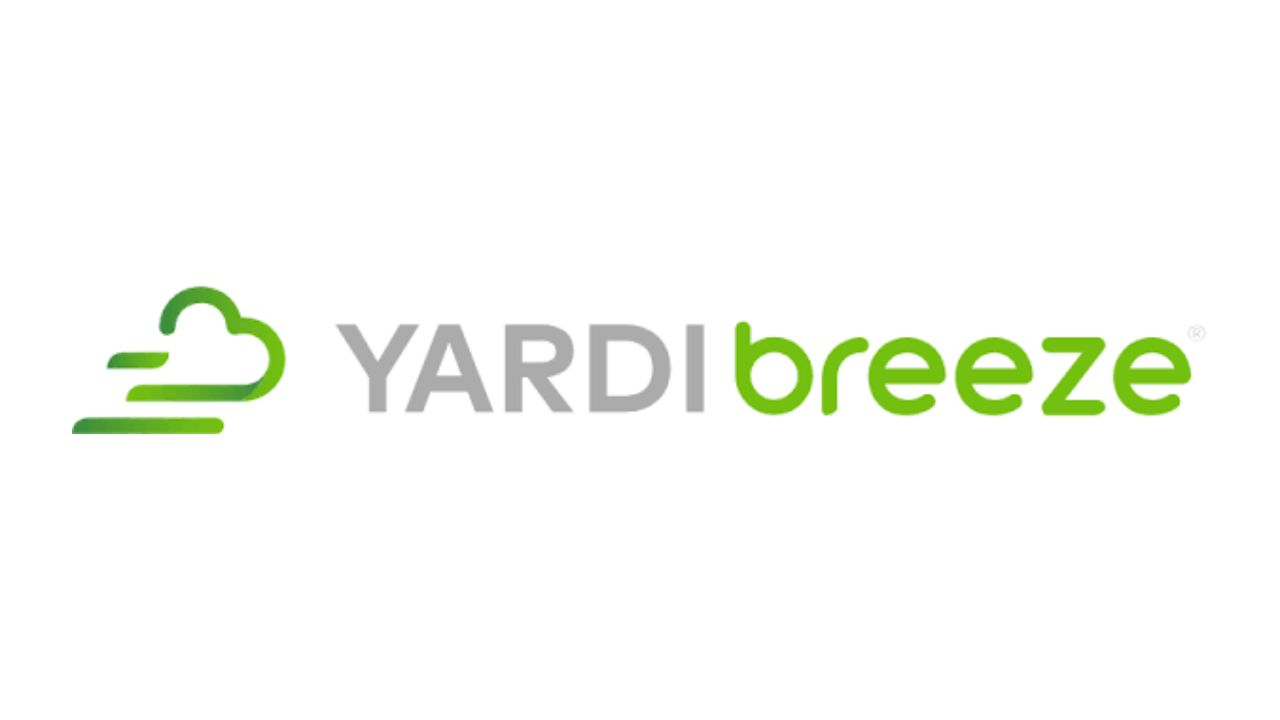
Property management is a multifaceted task that demands efficiency and adaptability. Yardi Breeze, a cloud-based property management software solution, has emerged as a trusted partner for property managers of all sizes, simplifying operations, enhancing tenant satisfaction, and maximizing profitability. With its intuitive interface and a comprehensive suite of features, Yardi Breeze offers a pathway to effective property management.
Key Features
Accounting and Financial Management:
- Effortless Income Management: Yardi Breeze streamlines rent collection and tracks various income streams, reducing administrative burdens.
- Expense Tracking: Property managers can efficiently track expenses and generate detailed financial reports for precise budget management.
- Bank Statement Reconciliation: The software simplifies the reconciliation of bank statements and handles late payments, ensuring financial stability.
Tenant Management:
- Streamlined Tenant Processes: Yardi Breeze simplifies tenant applications and background checks, saving time and improving the application process.
- Lease Management: Property managers can effortlessly manage lease agreements and renewals while offering the convenience of online rent collection.
- Resident Portal: A resident portal enhances tenant communication and offers self-service options for improved satisfaction.
Maintenance Management:
- Work Order Efficiency: Property managers can create and track work orders, ensuring that maintenance tasks are addressed promptly.
- Vendor Coordination: The software streamlines vendor relationships and payments, making maintenance management hassle-free.
- Inspections and Maintenance History: Property managers can conduct inspections and maintain a comprehensive history of maintenance tasks for better property upkeep.
Marketing and Leasing:
- Online Property Listings: Property managers can list properties online and efficiently manage listings, reducing the time properties remain vacant.
- Targeted Marketing: Yardi Breeze offers tools to attract tenants through targeted marketing campaigns.
- Leasing Management: The software effectively manages the entire leasing process, from applications to move-in, while also tracking vacancy rates and leasing trends.
Reporting and Analytics:
- Comprehensive Performance Reports: Property managers can generate detailed reports on property performance, facilitating informed decision-making.
- Data-Driven Insights: Yardi Breeze’s analytics enable property managers to identify trends and make informed choices.
- Benchmarking: Property performance can be benchmarked against industry standards, aiding in competitive positioning.
Top Considerations Before Choosing Yardi Breeze
- Pricing: Yardi Breeze offers tiered pricing plans based on the number of units managed and required features, necessitating a close examination of budget compatibility.
- Integrations: The software integrates with various third-party applications, including online payment gateways, marketing automation platforms, and tenant screening services. Compatibility with existing tools is essential.
- Training and Support: Yardi Breeze provides comprehensive training and support resources, including online tutorials, webinars, and dedicated customer support representatives. The availability and quality of these resources should be considered.
Pros of Yardi Breeze
- User-Friendly Interface: Yardi Breeze’s user-friendly interface simplifies the learning curve, making it accessible even for property managers with limited technical expertise.
- Mobile Convenience: Yardi Breeze’s mobile app provides property managers with the flexibility to access and manage properties on the go, offering convenience and adaptability.
- Scalability: Yardi Breeze is a scalable solution that can adapt to the needs of property managers of all sizes, from small businesses to large enterprises.
- Regular Updates: The software is continuously updated with new features and enhancements, ensuring that property managers have access to the latest tools and technologies.
Cons of Yardi Breeze
- Limited Customization: Yardi Breeze offers less customization compared to some other property management software solutions, which may not cater to highly specific needs.
- Complex Reporting: While Yardi Breeze provides comprehensive reporting, some users may find the reports to be overly complex or difficult to interpret.
- Initial Setup: Setting up and implementing Yardi Breeze can be time-consuming, especially for larger property management companies, possibly causing temporary disruptions.
Additional Considerations
- Industry-Specific Needs: If your property management company specializes in a particular industry, such as multifamily housing or commercial real estate, consider whether Yardi Breeze offers the specific features and functionality required for your niche.
- Integration with Existing Systems: Ensure that Yardi Breeze can seamlessly integrate with your existing property management systems, such as accounting software or tenant screening platforms, to avoid data silos and ensure seamless workflows.
- User Feedback: Reading reviews and testimonials from other property managers who have used Yardi Breeze can provide valuable insights into its strengths, weaknesses, and overall user experience.
4. Rent Manager
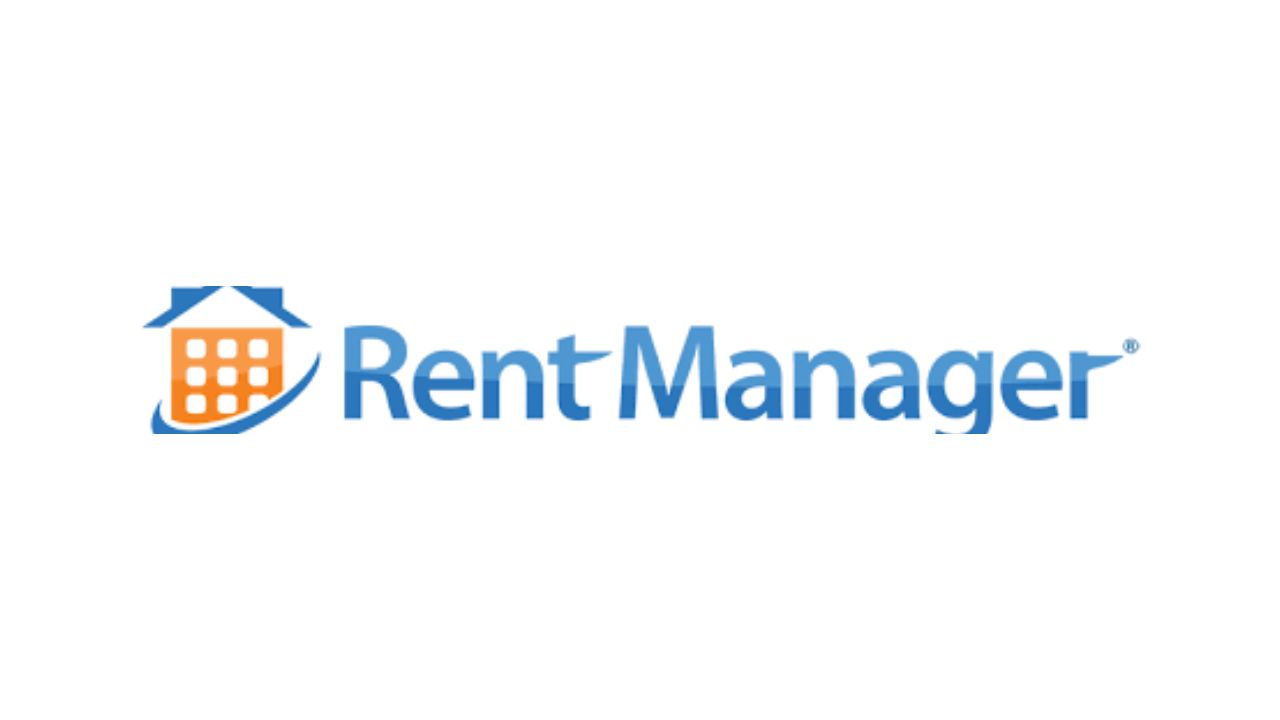
Property management is a complex and multifaceted field, demanding efficiency and adaptability. Rent Manager, a robust and versatile property management software solution, has emerged as a trusted partner for property managers of all sizes. With its comprehensive suite of features, user-friendly interface, and robust customer support, Rent Manager stands as a compelling choice for property professionals.
Key Features
Accounting and Financial Management:
- Effortless Income Management: Rent Manager simplifies rent collection and tracks various income streams, reducing administrative burdens.
- Expense Tracking: Property managers can efficiently track expenses and generate detailed financial reports for precise budget management.
- Bank Statement Reconciliation: The software simplifies the reconciliation of bank statements and handles late payments, ensuring financial stability.
- Automated Accounting: Rent Manager automates accounting tasks, such as recurring payments and journal entries, saving time and minimizing errors.
Tenant Management:
- Streamlined Tenant Processes: Rent Manager simplifies tenant applications and background checks, saving time and improving the application process.
- Lease Management: Property managers can effortlessly manage lease agreements and renewals while offering the convenience of online rent collection.
- Resident Portal: A resident portal enhances tenant communication and offers self-service options for improved satisfaction.
Maintenance Management:
- Work Order Efficiency: Property managers can create and track work orders, ensuring that maintenance tasks are addressed promptly.
- Vendor Coordination: The software streamlines vendor relationships and payments, making maintenance management hassle-free.
- Maintenance History: Rent Manager tracks maintenance history, helping to identify recurring issues for proactive maintenance.
Marketing and Leasing:
- Online Property Listings: Property managers can list properties online and efficiently manage listings, reducing the time properties remain vacant.
- Targeted Marketing: Rent Manager offers tools to attract tenants through targeted marketing campaigns.
- Leasing Management: The software effectively manages the entire leasing process, from applications to move-in, while also tracking vacancy rates and leasing trends.
Reporting and Analytics:
- Comprehensive Performance Reports: Property managers can generate detailed reports on property performance, facilitating informed decision-making.
- Data-Driven Insights: Rent Manager’s analytics enable property managers to identify trends and make informed choices.
- Benchmarking: Property performance can be benchmarked against industry standards, aiding in competitive positioning.
- Export Options: The software allows users to export reports to various formats for further analysis and sharing.
Top Considerations Before Choosing Rent Manager
- Pricing: Rent Manager offers tiered pricing plans based on the number of units managed and required features, necessitating a close examination of budget compatibility.
- Integrations: The software integrates with various third-party applications, including online payment gateways, marketing automation platforms, and access control systems. Compatibility with existing tools is essential.
- Training and Support: Rent Manager provides comprehensive training and support resources, including online tutorials, webinars, and dedicated customer support representatives. The availability and quality of these resources should be considered.
Pros of Rent Manager
- Comprehensive Suite of Features: Rent Manager covers all aspects of property management, offering a one-stop solution for property managers.
- User-Friendly Interface: The software’s intuitive and easy-to-navigate interface makes it accessible to property managers of all technical skill levels.
- Mobile Convenience: Rent Manager’s mobile app provides property managers with the flexibility to access and manage properties on the go, offering convenience and adaptability.
- Customization Options: Rent Manager offers various customization options, allowing property managers to tailor the software to their specific needs and preferences.
Cons of Rent Manager
- Learning Curve: While Rent Manager’s interface is user-friendly, there may be a slight learning curve for property managers who are new to the software or those with limited technical expertise.
- Initial Setup: Setting up and implementing Rent Manager can be time-consuming, especially for larger property management companies, potentially causing temporary disruptions.
- Reporting Options: Some users may find the reporting options to be limited or not as customizable as they would like.
Additional Considerations
- Industry-Specific Needs: If your property management company specializes in a particular industry, such as multifamily housing or commercial real estate, consider whether Rent Manager offers the specific features and functionality required for your niche.
- Integration with Existing Systems: Ensure that Rent Manager can seamlessly integrate with your existing property management systems, such as accounting software or tenant screening platforms, to avoid data silos and ensure seamless workflows.
- User Feedback: Reading reviews and testimonials from other property managers who have used Rent Manager can provide valuable insights into its strengths, weaknesses, and overall user experience.
5. Propertyware
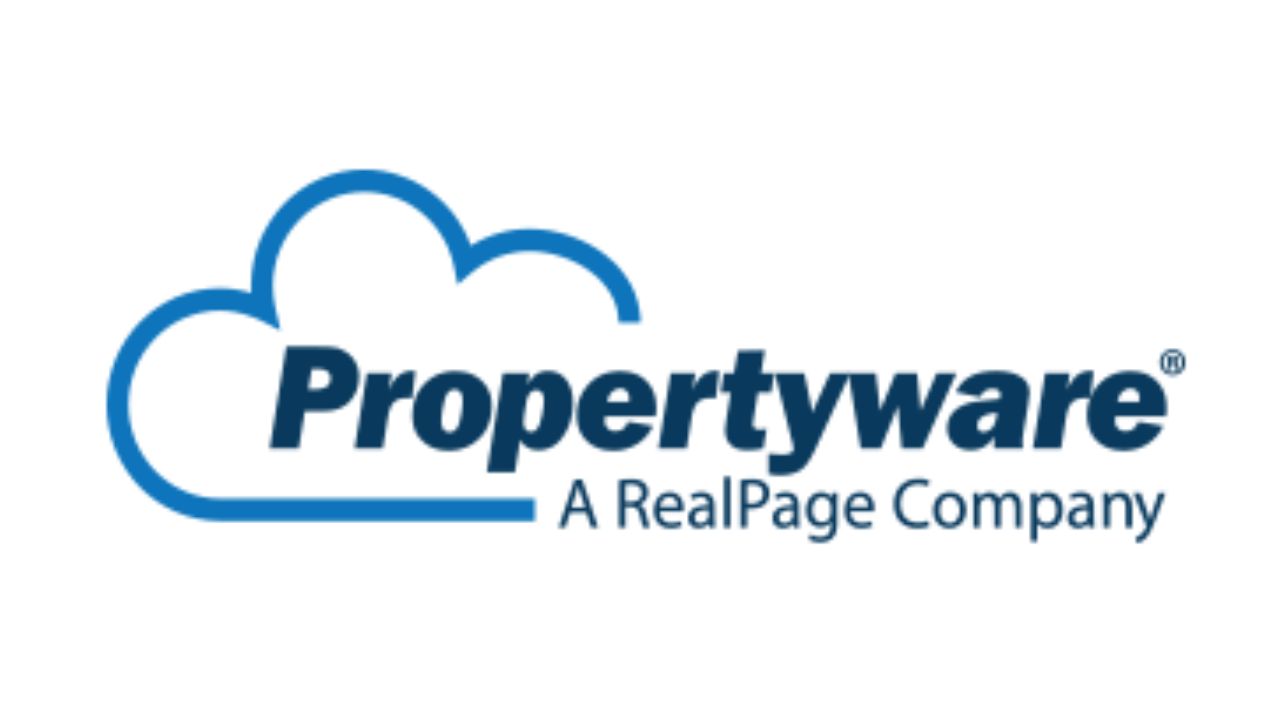
Property management is a challenging and multifaceted field, requiring precision and efficiency. Propertyware, a cloud-based property management software solution, has emerged as a trusted ally for property managers of all sizes, aiming to streamline operations, enhance tenant satisfaction, and maximize profitability. With its comprehensive feature set, user-friendly interface, and robust reporting capabilities, Propertyware stands as an appealing choice for property professionals.
Key Features
Accounting and Financial Management:
- Effortless Income Management: Propertyware simplifies rent collection and tracks various income streams, alleviating administrative burdens.
- Expense Tracking: Property managers can efficiently monitor expenses and generate detailed financial reports for accurate budget management.
- Bank Statement Reconciliation: The software streamlines the reconciliation of bank statements and handles late payments, ensuring financial stability.
- Automated Accounting: Propertyware automates accounting tasks, including recurring payments and journal entries, saving time and reducing errors.
Tenant Management:
- Simplified Tenant Processes: Propertyware streamlines tenant applications and background checks, saving time and enhancing the application process.
- Lease Management: Property managers can effortlessly handle lease agreements and renewals while offering the convenience of online rent collection.
- Resident Portal: A resident portal fosters tenant communication and offers self-service options for improved satisfaction.
Maintenance Management:
- Work Order Efficiency: Property managers can create and track work orders, ensuring prompt handling of maintenance tasks.
- Vendor Coordination: The software simplifies vendor relationships and payments, making maintenance management hassle-free.
- Maintenance History: Propertyware tracks maintenance history, facilitating the identification of recurring issues for proactive maintenance.
Marketing and Leasing:
- Online Property Listings: Property managers can list properties online and efficiently manage listings, reducing property vacancy durations.
- Targeted Marketing: Propertyware provides tools to attract tenants through targeted marketing campaigns.
- Leasing Management: The software effectively manages the entire leasing process, from applications to move-in, while also tracking vacancy rates and leasing trends.
Reporting and Analytics:
- Comprehensive Performance Reports: Property managers can generate detailed reports on property performance, facilitating informed decision-making.
- Data-Driven Insights: Propertyware’s analytics empower property managers to identify trends and make informed choices.
- Benchmarking: Property performance can be benchmarked against industry standards, aiding in competitive positioning.
- Advanced Reporting: The software offers advanced reporting options, allowing users to drill down into specific data points for in-depth analysis.
Top Considerations Before Choosing Propertyware
- Pricing: Propertyware offers tiered pricing plans based on the number of units managed and required features, necessitating a close examination of budget compatibility.
- Integrations: The software integrates with various third-party applications, including online payment gateways, marketing automation platforms, and tenant screening services. Compatibility with existing tools is essential.
- Training and Support: Propertyware provides comprehensive training and support resources, including online tutorials, webinars, and dedicated customer support representatives. The availability and quality of these resources should be considered.
Pros of Propertyware
- Comprehensive Feature Set: Propertyware covers all aspects of property management, offering a one-stop solution for property managers.
- Robust Reporting Capabilities: Propertyware’s reporting capabilities are highly praised by users, offering a wide range of customizable reports and the ability to drill down into specific data points.
- User-Friendly Interface: The software’s intuitive and easy-to-navigate interface makes it accessible to property managers of all technical skill levels.
- Mobile Convenience: Propertyware’s mobile app provides property managers with the flexibility to access and manage properties on the go, offering convenience and adaptability.
Cons of Propertyware
- Initial Setup: Setting up and implementing Propertyware can be time-consuming, especially for larger property management companies, potentially causing temporary disruptions.
- Limited Customization Options: While Propertyware offers some customization options, it may not cater to the specific needs of property managers who require highly customized solutions.
- Reporting Complexity: Some users may find the advanced reporting options to be overly complex or difficult to interpret.
Additional Considerations
- Industry-Specific Needs: If your property management company specializes in a particular industry, such as multifamily housing or commercial real estate, consider whether Propertyware offers the specific features and functionality required for your niche.
- Integration with Existing Systems: Ensure that Propertyware can seamlessly integrate with your existing property management systems, such as accounting software or tenant screening platforms, to avoid data silos and ensure seamless workflows.
- User Feedback: Reading reviews and testimonials from other property managers who have used Propertyware can provide valuable insights into its strengths, weaknesses, and overall user experience.
6. TenantCloud
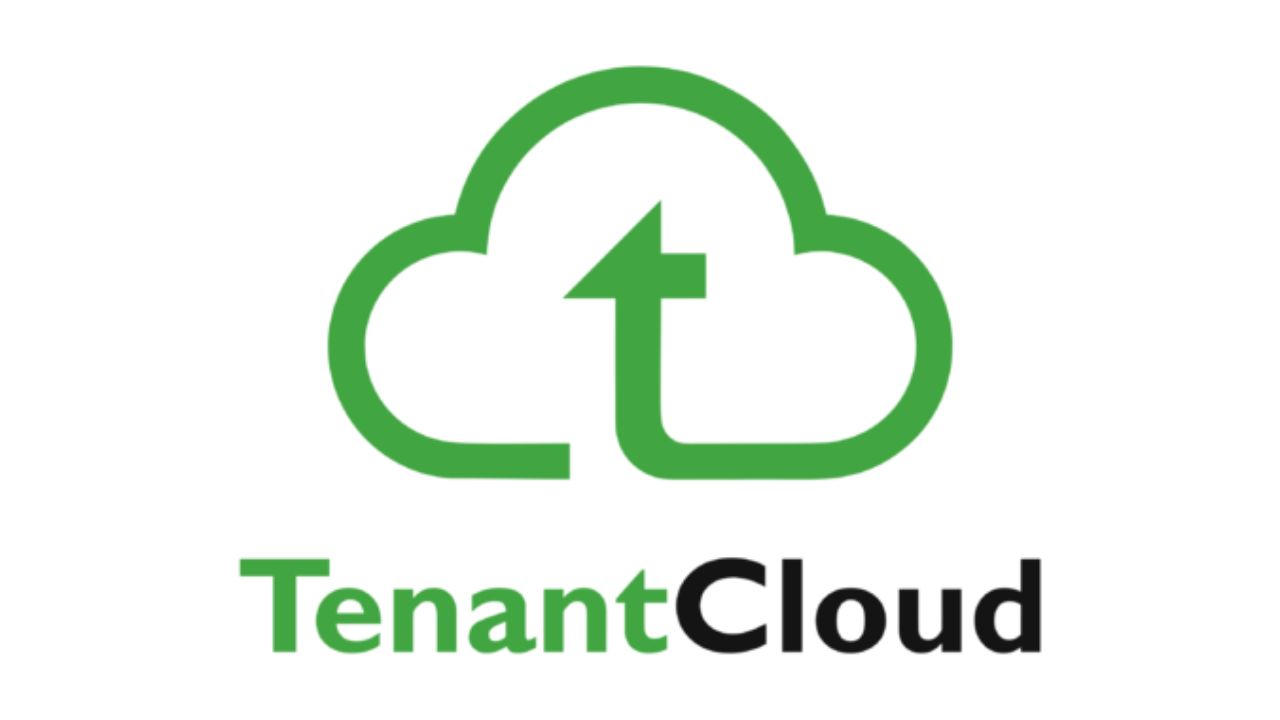
Property management doesn’t always require complex, feature-packed solutions, especially for small landlords. TenantCloud, a cloud-based property management software, addresses the specific needs of landlords overseeing a handful of properties. With its user-friendly interface, cost-effective pricing, and a suite of essential features, TenantCloud has become a top choice for property managers in this niche.
Key Features
Accounting and Financial Management:
- Rent and Income Tracking: Easily monitor rent collection and various income streams, simplifying financial management.
- Expense Management: Handle expenses and generate basic financial reports to maintain financial control.
- Optional Bank Statement Reconciliation: Although optional, TenantCloud can help reconcile bank statements and manage late payments with reminders.
Tenant Management:
- Streamlined Tenant Processes: Process tenant applications and basic background checks efficiently, reducing administrative tasks.
- Lease Management: Manage lease agreements and renewals and offer the convenience of online rent collection.
- Tenant Portal: A tenant portal promotes communication and provides self-service options.
Maintenance Management:
- Work Order Tracking: Create and track work orders for timely maintenance.
- Schedule Maintenance Tasks: Schedule maintenance tasks, ensuring timely resolution.
- Optional Vendor Management: For landlords who need it, TenantCloud can help manage vendor relationships and payments.
- Maintenance History: Track maintenance history, helping landlords identify recurring issues.
Marketing and Leasing:
- Basic Property Listings: List properties online, but with limited features compared to more comprehensive solutions.
- Basic Marketing Tools: Attract tenants with basic marketing tools.
- Leasing Management: Manage the leasing process from applications to move-in and monitor basic vacancy rates.
Reporting and Analytics:
- Basic Reporting: Generate basic reports on property performance.
- Key Metrics Analysis: Analyze essential metrics like rent collection and vacancy rates.
- Export Options: Export reports to various formats for further analysis and sharing.
Top Considerations Before Choosing TenantCloud
- Target Audience: TenantCloud is primarily designed for small landlords with limited portfolios. Larger property management companies may require more advanced features.
- Pricing: TenantCloud offers a straightforward pricing structure with three tiers based on the number of units managed, making it a cost-effective option for small landlords.
- Integrations: TenantCloud integrates with a limited number of third-party applications, primarily focusing on essentials such as Stripe for online payments and Zillow for property listings.
- Training and Support: TenantCloud provides online tutorials, knowledge base articles, and email support as part of its support offerings.
Pros of TenantCloud
- User-Friendly Interface: TenantCloud’s intuitive interface is perfect for landlords with limited technical expertise.
- Affordable Pricing: TenantCloud’s cost-effective pricing plans are among the most affordable in the property management software market.
- Mobile App: The mobile app allows landlords to access and manage their properties on the go, providing flexibility and convenience.
- Focus on Essentials: TenantCloud concentrates on providing the essential features that small landlords need without overwhelming them with complex functionalities.
Cons of TenantCloud
- Limited Features: Compared to more comprehensive property management software, TenantCloud may lack advanced features, such as sophisticated reporting, extensive tenant screening, and advanced marketing tools.
- Limited Integrations: TenantCloud’s integration capabilities with third-party applications are limited compared to other software solutions.
- Scalability: As landlords expand their portfolios, they may need to consider upgrading to more advanced property management software solutions that can accommodate their growing needs.
7. SimplifyEm
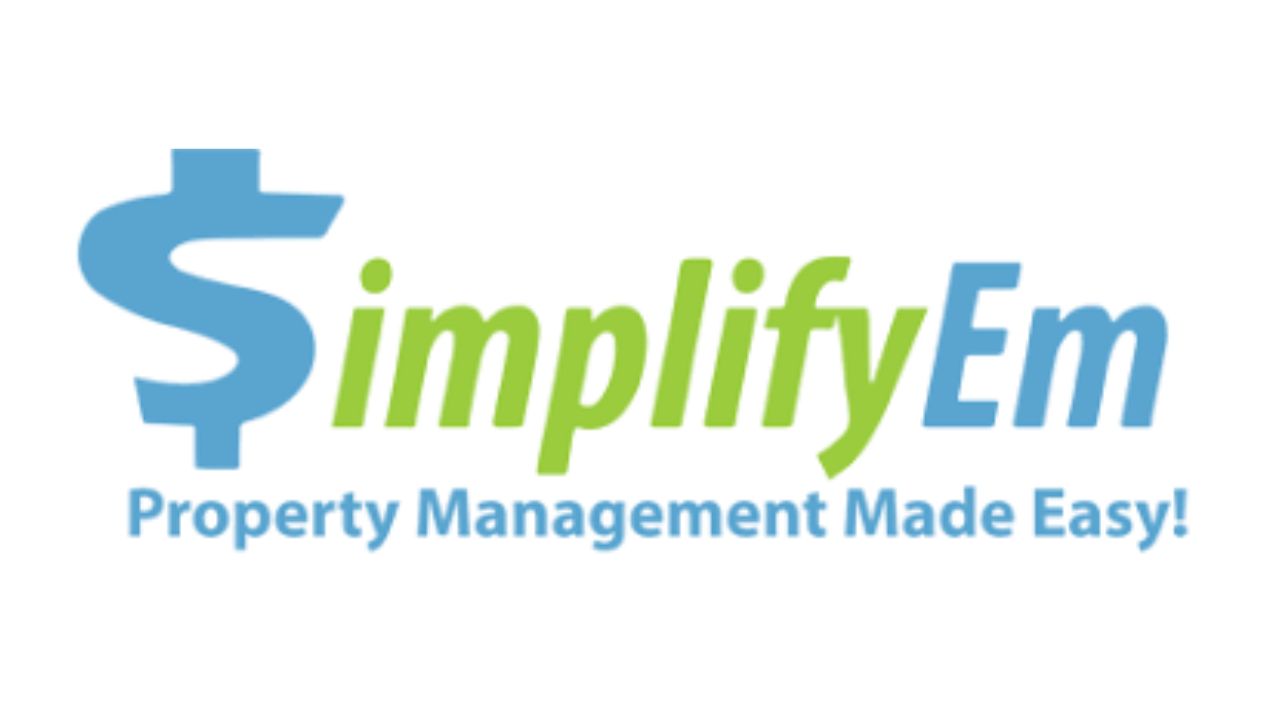
Property management can be complex, but not every solution needs to be. SimplifyEm, a cloud-based property management software, targets landlords and small property management companies, offering an easy-to-use and affordable approach to property management. With its user-friendly interface and focus on essential features, SimplifyEm has become a favored choice for those who value simplicity.
Key Features
Accounting and Financial Management:
- Income and Expense Tracking: Keep tabs on rent collection and expenses while generating basic financial reports for budget management.
- Optional Bank Statement Reconciliation: Though optional, SimplifyEm offers the convenience of bank statement reconciliation and late payment reminders.
Tenant Management:
- Efficient Tenant Processes: SimplifyEm streamlines tenant applications and basic background checks, simplifying the application process.
- Lease Management: Easily handle lease agreements, renewals, and online rent collection for tenants.
- Tenant Portal: The software offers a tenant portal to facilitate communication and provide self-service options.
Maintenance Management:
- Work Order Tracking: Create and track work orders for timely maintenance management.
- Schedule Maintenance Tasks: Efficiently schedule maintenance tasks, ensuring prompt resolution.
- Optional Vendor Management: For those who need it, SimplifyEm can help manage vendor relationships and payments.
- Maintenance History: Track maintenance history to identify recurring issues.
Marketing and Leasing:
- Basic Property Listings: List properties online, but with limited features compared to more comprehensive solutions.
- Basic Marketing Tools: Attract tenants with basic marketing tools.
- Leasing Management: Manage the entire leasing process, from applications to move-in, while tracking basic vacancy rates.
Reporting and Analytics:
- Basic Reporting: Generate basic reports on property performance.
- Key Metrics Analysis: Analyze crucial metrics such as rent collection and vacancy rates.
- Export Options: Reports can be exported to various formats for further analysis and sharing.
Top Considerations Before Choosing SimplifyEm
- Target Audience: SimplifyEm primarily caters to landlords and small property management companies managing a moderate number of properties. Larger firms may require more advanced features.
- Pricing: SimplifyEm offers a straightforward pricing structure with three tiers based on the number of units managed, making it a cost-effective choice for small businesses.
- Integrations: SimplifyEm integrates with a limited number of third-party applications, focusing primarily on online payments and tenant screening.
- Training and Support: SimplifyEm provides online tutorials, knowledge base articles, and email support as part of its support offerings.
Pros of SimplifyEm
- Easiest to Use: SimplifyEm is consistently praised for its user-friendly interface, making it accessible to landlords and property managers with limited technical expertise.
- Affordable Pricing: Among the most affordable in the property management software market, SimplifyEm’s pricing plans offer cost-effective options for small businesses.
- Focus on Simplicity: SimplifyEm provides essential features without overwhelming users with complex functionalities.
- Mobile App: The mobile app allows property managers and landlords to access and manage their properties on the go, offering flexibility and convenience.
Cons of SimplifyEm
- Limited Features: Compared to more comprehensive property management software solutions, SimplifyEm may lack certain advanced features, such as sophisticated reporting, extensive tenant screening, and advanced marketing tools.
- Limited Integrations: SimplifyEm’s integration capabilities with third-party applications are limited compared to other software solutions.
- Scalability: As property managers grow their portfolios, they may need to upgrade to more advanced property management software solutions that can accommodate their expanding needs.
8. TurboTenant
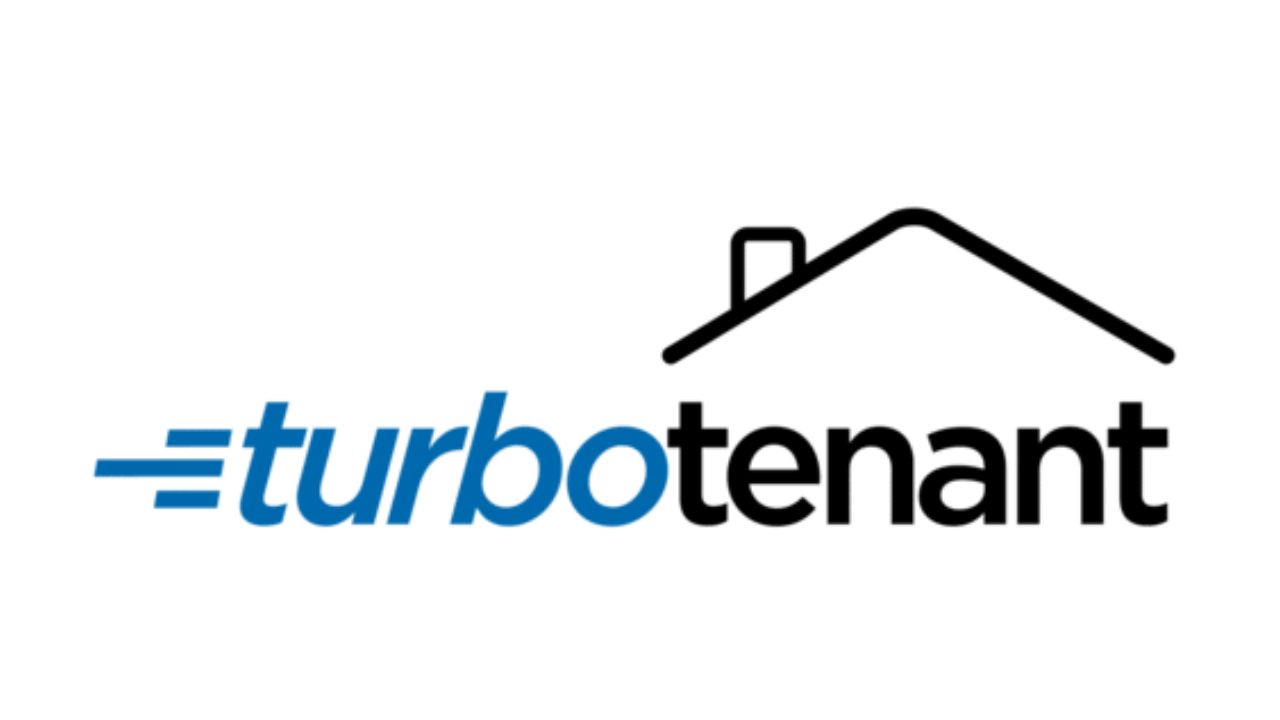
Managing rental properties as a DIY landlord doesn’t have to be overwhelming, especially when you have the right tools. TurboTenant, a cloud-based property management software, is designed to simplify and streamline operations for individual landlords. With a focus on user-friendliness, affordability, and essential features, TurboTenant has become a top choice for landlords seeking a self-service property management solution.
Key Features
Essential Property Management Tools:
- Tenant Applications and Background Checks: Manage tenant applications and background checks with ease.
- Lease Agreement Management: Generate and manage lease agreements efficiently.
- Online Rent Collection: Collect rent online and handle late payments seamlessly.
- Tenant Portal: Provide a tenant portal for communication and self-service, enhancing tenant-landlord interactions.
- Work Order Management: Create and track work orders for timely maintenance.
- Online Property Listings: List properties online to attract potential tenants.
- Vacancy Tracking: Keep an eye on vacancy rates and leasing trends.
Landlord-Friendly Features:
- User-Friendly Interface: TurboTenant’s interface is designed specifically for landlords, ensuring ease of use.
- Affordable Pricing: Tailored pricing plans make it cost-effective for individual landlords.
- Streamlined Processes: TurboTenant simplifies common landlord tasks, saving time and effort.
- Mobile App: The mobile app enables landlords to manage properties on the go, offering flexibility and convenience.
Things to Consider Before Choosing TurboTenant
- Target Audience: TurboTenant is crafted for DIY landlords managing a small number of properties who prefer a self-service approach to property management. Larger property management companies or landlords with more complex needs may require advanced software solutions.
- Pricing: TurboTenant’s pricing structure is straightforward, with three tiers based on the number of units managed.
- Integrations: TurboTenant’s integrations with third-party applications are limited, primarily focusing on online payments and tenant screening.
- Training and Support: TurboTenant provides online resources, tutorials, and email support for users.
Pros of TurboTenant
- Ease of Use: TurboTenant’s intuitive interface is easily navigable, making it accessible to landlords with limited technical expertise.
- Affordability: Tailored pricing plans ensure that TurboTenant remains a cost-effective choice for self-managed properties.
- Streamlined Processes: Common landlord tasks, including tenant screening, lease management, and online rent collection, are streamlined, saving time and effort.
- Landlord-Focused Features: TurboTenant’s features are tailored to the specific needs of DIY landlords, providing essential tools for effective property management.
- Mobile App: The mobile app allows landlords to manage properties while on the go, offering flexibility and convenience.
Cons of TurboTenant
- Limited Features: When compared to more comprehensive property management software solutions, TurboTenant may lack advanced features such as sophisticated reporting, extensive maintenance management tools, and advanced marketing capabilities.
- Limited Integrations: TurboTenant’s integration capabilities with third-party applications are limited in comparison to other software solutions.
- Scalability: As landlords grow their portfolios, they may need to transition to more advanced property management software solutions to accommodate their expanding needs.
The Benefits of Property Management Software
Property management software offers numerous advantages, including:
1. Improved Efficiency
Property managers can handle a wide range of tasks more effectively, from tenant screening to financial management. Automation reduces manual labor and minimizes errors.
2. Reduced Costs
By streamlining financial processes, optimizing budgets, and automating maintenance tasks, property management software helps reduce operating expenses and improve cost management.
3. Enhanced Tenant Satisfaction
Efficient communication, streamlined service requests, and simplified lease agreements lead to happier tenants. Happy tenants are more likely to stay longer, reducing vacancy rates.
4. Data-Driven Decision-Making
Access to comprehensive reports and analytics empowers property managers to make informed decisions. This data-driven approach can lead to more profitable and strategic property management.
5. Streamlined Compliance and Risk Mitigation
Property management software helps ensure compliance with regulations and mitigate potential risks by providing tools for tracking and reporting.
Selecting the Right Property Management Software
Selecting the right property management software is crucial for your specific needs. Here’s how to choose the best fit:
1. Consider Property Type and Size
Think about the size and type of properties you manage. Some software is better suited for small residential properties, while others are designed for large commercial spaces.
2. Evaluate Desired Features and Functionality
Identify the features and functionality you need. Are you looking for robust financial management tools, seamless tenant communication, or both?
3. Assess Budget and Pricing Options
Determine your budget for software implementation and ongoing costs. Many software solutions offer pricing tiers to accommodate different budgets.
4. Read Reviews and Compare Software Options
Take the time to read reviews and compare different software options. Real-world user experiences can provide valuable insights.
5. Seek Recommendations from Industry Peers
Reach out to industry peers and colleagues for recommendations. They can offer insights based on their experiences.
FAQs
1. Is QuickBooks good for landlords?
QuickBooks can be a good option for landlords who manage a small number of properties and have some accounting experience. It offers basic features for tracking income and expenses, managing tenants, and generating reports. However, it may not be as user-friendly or have the same level of functionality as dedicated property management software.
2. How do I organize multiple rental properties?
Organizing multiple rental properties requires a systematic approach that involves creating a centralized system, establishing individual property files, standardizing tenant communication, implementing a maintenance management system, automating recurring tasks, generating regular reports, conducting property inspections, and staying up-to-date on regulations.
Conclusion
In conclusion, property management software is a game-changer in the industry. It enhances overall efficiency and success by streamlining operations, reducing costs, and boosting tenant satisfaction while maximizing profitability. To stay ahead in the competitive property management landscape, explore the diverse software solutions available and find the one that best suits your property management needs. Embrace these tools to drive your property management operations to new heights.

